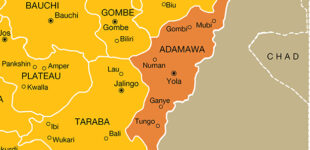What the recent oil disruption means for Nigeria

The unprecedented oil disruption in Saudi Arabia in September shocked the markets and triggered multiple financial reactions for investors across the globe.
Oil prices exploded 20% higher on Monday, September 16 after attacks on Saudi oil fields caused disruptions of 5.7 million barrels per day, roughly 5% of global oil supplies. Oil later gave back gains after Saudi Arabia pledged that production would be up and running by the end of September.
However, there are doubts that the damage – which is thought to run into the hundreds of millions of Dollars – will be fixed so quickly.
Dynamic influencing oil market swings back and forth
The uncertainty is also disrupting oil prices, which spikes intermittently before calming on data like the US Energy Information Administration’s (EIA) report about a 2.4 million barrel build in crude oil inventories on September 25.
On top of that, geopolitical tensions in the Middle East add more concerns for the short-term future of oil markets.
Going forward, oil prices are expected to be more sensitive to negative supply shocks, at least in the short term. If the serious tensions between Iran and the US escalate, oil prices may be supported with a degree of upside potential.
OPEC continues with its quest to stabilize markets
Another factor to consider is OPEC’s reaction and possible change of mind over its supply cut policy. As recently as September 12, OPEC persuaded Nigeria to join supply cuts to prevent a global glut from drastically undercutting prices and oil revenues for oil-producing countries.
The supply-side circumstances have changed considerably since then.
Recent reports have revealed that OPEC’s oil output fell to an eight-year low in September, pumping 28.9 million barrels per day (bpd) which was down 750,000 bpd from August’s revised figure and lowest monthly total since 2011.
Should Saudi Arabia experience more attacks or take longer than expected to restore normal oil production from the damaged facilities, OPEC may need to reconsider supply cuts and increase production so its members can meet global supply-demand.
At the time of writing, Nigeria’s light sweet crude oil, Qua Iboe and Bonny Light, are trading at their normal level of $3 above the brent crude benchmark because Saudi Arabia has pledged to be back to normal light crude oil production levels by the end of September.
In the meantime, Saudi Arabia has restored output to 11.3 million barrels per day but is relying on sales of heavy crude oil. Should Saudi Arabia disappoint the market’s expectations, light sweet crude oil prices may change in Nigeria’s favour.
Overall, given how oil sales account for roughly 70% of government revenues and 90% of Nigeria’s foreign exchange earnings, if the recent disruption results in a net rise in oil prices, it could offer short-term support to the nation.
Impact on Nigeria’s economic growth
As an emerging market energy exporter, the prospects of rising oil prices should feedback into Nigeria’s economic growth. Higher oil prices would boost the nation’s foreign exchange reserves, promote foreign exchange stability and boost government spending in economic infrastructure which in turn would be positive for growth.
On the other hand, Nigeria’s fiscal and monetary policymakers must always be on the lookout for inflationary pressures. In August, inflation in Nigeria fell to 11.02%, a 43-month low. But higher oil prices may squeeze company and consumer transportation budgets, re-igniting inflation.
Higher oil price could hit consumer spending
The flip side of higher oil prices is the risk of rising inflation. This would likely drag on consumer spending and complicate central bank efforts to ease monetary policy, which may end up pressuring economic growth.
On a larger scale, the threat of a global recession lurks around the corner. Rising oil prices could also threaten global growth with higher running costs.
While Nigeria and energy producers would welcome higher oil prices, everyone will lose if unaffordable costs tip the global economy into recession.
Diversification remains the cure to Nigeria’s oil dependence
In September, the Central Bank of Nigeria (CBN) left interest rates unchanged at 13.5%. Movements in the oil markets have a direct impact on CBN’s rate decisions, so I am closely watching developments in this area. Especially when considering how the CBN governor wants inflation to slow to 9% or less before he considers cutting interest rates further.
For Nigeria to reduce exposure to oil volatility in the long term, the quest for diversification needs to build momentum. Nigeria could source growth from non-oil sectors like Agriculture and Services.
In conclusion, until diversification reduces Nigeria’s dependence on oil revenues, the economy remains vulnerable to oil price volatility and an uneven demand-supply equation.















Our country is obviously blessed. If only our leaders can set their priorities right and invest the excess available funds into something productive, then our future would be guaranteed. Until then, no economic boost or whatsoever would make a difference.